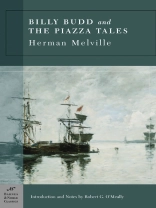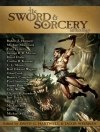Billy Budd and the Piazza Tales, by
Herman Melville , is part of the
Barnes & Noble Classics
series, which offers quality editions at affordable prices to the student and the general reader, including new scholarship, thoughtful design, and pages of carefully crafted extras. Here are some of the remarkable features of
Barnes & Noble Classics:
- New introductions commissioned from todays top writers and scholars
- Biographies of the authors
- Chronologies of contemporary historical, biographical, and cultural events
- Footnotes and endnotes
- Selective discussions of imitations, parodies, poems, books, plays, paintings, operas, statuary, and films inspired by the work
- Comments by other famous authors
- Study questions to challenge the readers viewpoints and expectations
- Bibliographies for further reading
- Indices & Glossaries, when appropriate
Barnes & Noble Classics pulls together a constellation of influences—biographical, historical, and literary—to enrich each readers understanding of these enduring works.
Largely neglected in his own lifetime, Herman Melville mastered not only the great American novel but also the short story and novella forms. In Billy Budd and The Piazza Tales, Melville reveals an uncanny awareness of the inscrutable nature of reality.
Published posthumously in 1924, Billy Budd is a masterpiece second only to Melville’s Moby-Dick. This complex short novel tells the story of “the handsome sailor” Billy who, provoked by a false charge, accidentally kills the satanic master-at-arms. Unable to defend himself due to a stammer, he is hanged, going willingly to his fate. Although typically ambiguous, Billy Budd is seen by many as a testament to Melville’s ultimate reconciliation with the incongruities and injustices of life.
The Piazza Tales (1856) comprises six short stories, including the perpetually popular “Benito Cereno” and “Bartleby, ” a tale of a scrivener who repeatedly distills his mordant criticism of the workplace into the deceptively simple phrase “I would prefer not to.”
Robert G. O’Meally is Zora Neale Hurston Professor of Literature at Columbia University, where he has served on the faculty for seventeen years; since 1999 he has been the director of Columbia’s Center for Jazz Studies. He is the author of
The Craft of Ralph Ellison and
Lady Day: The Many Faces of Billie Holiday, and the principal writer of
Seeing Jazz, the catalog for the Smithsonian Institution’s exhibit on jazz painting and literature.












